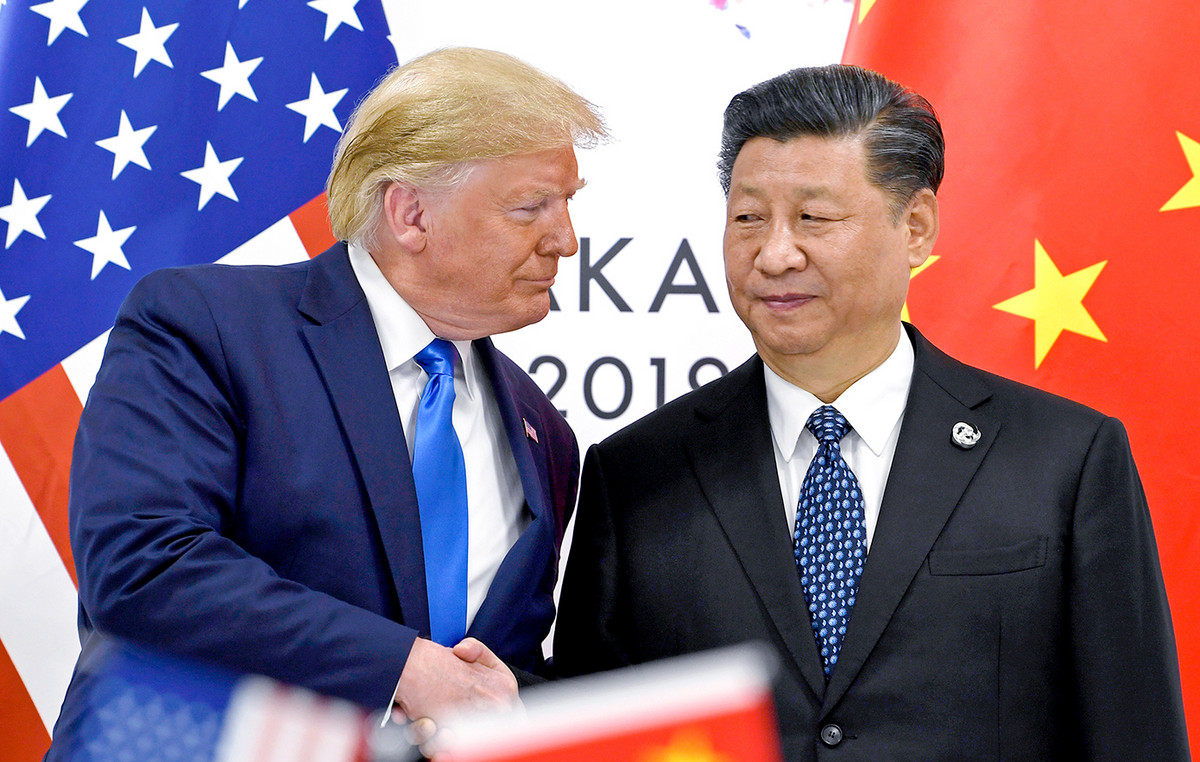The use of electronic cigarettes by teenagers has put Brazilian schools on alert. The concern grew this year, with the resumption of face-to-face classes. Consumption is common in reserved environments, such as bathrooms, and there are even cases of selling devices, which are prohibited in Brazil, in schools.
Private schools make announcements to parents and discuss the risks of the substance, which is often seen as harmless, in classes. The challenge of the e-cigarette siege, however, is great: as they are discreet (some look like flash drives), they can go unnoticed by teachers.
The devices work through a battery that heats an internal liquid (a mixture of water, food flavoring, nicotine, propylene glycol and vegetable glycerin). Also called a vape or pod, the device is swallowed through the mouth and creates white, odorless smoke or a smell that quickly dissipates into the air.
teenagers heard by Estadão say that consumption is common among groups of students, especially high school students, in bathrooms, at the back of the classroom or on the courts. Young people send cellphone messages to each other to arrange meetings in more private areas of schools, where they smoke together. The use also occurs outside the school, at the end of class or during the break between shifts.
The students still make crowdfunding to buy electronic cigarettes. As they are expensive – a vape can cost from R$60 to R$680 -, the habit is more common in private schools. Despite being banned in Brazil, electronic cigarettes are easily found in tobacconists, convenience stores and social networks. At school, they are passed from hand to hand or inside the cases, say the students.
In some cases, young people already know the risks of the substance, but use it as a way of belonging to the group or as an outlet for emotional issues. In others, they are surprised by the information that it can be carcinogenic, addictive and cause damage to the lungs.
“Fashion”
Director of a private school in the south of São Paulo, Ana Paula de Oliveira says that the school’s auditorium, made up of high school and elementary school students, “went under”, surprised, during a lecture on the risks of electronic cigarettes last week. last. “They don’t understand that there is nicotine, the harm it does to their health. They just fulfill a fashion,” she says.
The lecture took place after the school witnessed the sale of the vape between two students – these students were asked to unenroll. “We comply with what our bylaws provide,” explains the director, citing the ban on the sale of licit or illicit drugs at the school. For her, after leaving the school environment in the pandemic, the teenagers returned with difficulties in following the rules.
E-cigarettes are a chronic problem in other countries, such as the United States. In Brazil, it has gained strength more recently. “Everyone goes to the more spacious wheelchair cabin (in the bathroom), and everyone stays there”, says a 17-year-old student at a private school in Brasília. Another 14-year-old student, from the state network of São Paulo, says she started using it a month ago, at school, and shares the grape flavored vape with three colleagues. Consumption, she says, is to relieve tensions. “I never had a good relationship with my mother and, since the beginning of the pandemic, it has only gotten worse.”
A traditional private school in Salvador, Antônio Vieira, sent a statement to parents at the end of March about the risk of electronic cigarettes. The direction says it has not registered consumption at school, but perceives an increase in the problem among young people in general. The statement even mentions “compulsory transfer” in case of use at school.
“They find the technology of the device interesting, which can add water and the flavor they want”, says the academic director of Antônio Vieira, Ana Paula Marques. “Families themselves are often unclear as to what this is.” Teachers have been looking for information on the subject.
Novelties like different flavors and glow-in-the-dark devices appeal to teens. “There is a feeling that it is not addictive and that it can stop at any time”, says Mario Fioranelli Neto, pedagogical coordinator at Centro Educacional Pioneiro, in the south of São Paulo. The school registered a specific case of use in the school – the student himself sought the direction -, but it is also concerned about the diffusion of electronic cigarettes outside the school environment, such as at parties or when students go out for lunch.
Luciana Nogueira, a professor at the Department of Education at the Universidade Estadual Paulista (Unesp), says she has received reports from schools about the problem and says that the positive view of vape makes the device even more dangerous. Unlike the traditional cigarette, which has a strong smell and bothers those close by, the electronic is socially accepted, “as something cool, cool, fashionable”.
She warns that even electronic devices without nicotine are addictive, as smoking addiction is not only chemical in origin, but mainly psychic. “They are getting into the habit of taking an object to their mouth and swallowing,” says Luciana, a specialist in adolescent vulnerabilities.
Self-affirmation
Another problem is the difficulty of identifying the device. “Because (the electronic cigarette) has a small, camouflaged, modern face, it is very easy to pass it on, unless you are looking for it”, says Edgar Crispino, Biology professor at Escola Carandá Educação, in the south zone. from Sao Paulo. He claims to have caught a group vaping once outside the bathroom door, and from there, he began a job of bringing information into the classroom.
The subject was on the agenda, in the questions of the students themselves, in classes on physiology and pollution. “If they are using it for a reason, we need to understand what it is and talk about it. Often, they use it because it’s the cool thing at the moment, due to social pressure”, says the professor, who also sees the impact of the distance caused by the pandemic on the teenagers’ need for self-affirmation. “We want them to seek help without feeling cornered or demonized, which can cause them to walk away from us and continue using.”
After the topic was addressed, the professor says that there was an “ice break” between professors and students, who felt more open to dialogue even about other thorny issues of adolescence. At Pioneiro, approaches in ethical coexistence classes are also planned. When contacted, the São Paulo State Department of Education reinforces that consumption is prohibited and says it develops projects and produces awareness-raising content for students. The information is from the newspaper. The State of São Paulo.
Source: CNN Brasil







